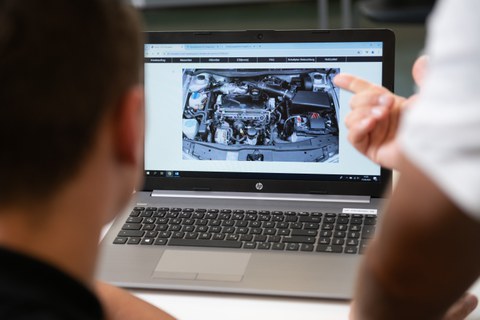Feb 13, 2025
First working group meeting in the InnoVET-Kfz project in 2025
The first working group meeting of the year in the InnoVET-Kfz project took on the 11th of February 2025 - a valuable exchange with our cooperation partners, both on site and digitally via Zoom. Together, we were able to gain important insights for the further course of the project.
🔍 First results of the pilot study
A central topic was the presentation of the first results from our pilot study, in which 33 trainees for automotive mechatronics technicians took part at the Haus des Kfz-Gewerbes in Dresden. We tested various survey instruments, including methods for recording the trainees' automotive diagnostic skills and motivation. Particularly revealing: the participants' self-assessment showed that they often significantly overestimate their own diagnostic skills. This finding underlines the need for targeted learning opportunities to promote vehicle diagnostic skills. In addition to content-related aspects, other factors, such as the trainees' motivation, should also be taken into account. The development of a corresponding learning path is the focus of our first sub-project.
💡 Vehicle computer simulation as a digital examination station
Another highlight was the presentation of the current status of the vehicle computer simulation, which is to be used for the first time in the practical final examination in the Dresden area from the summer. In the second part of our project, we are developing a digital examination station that will enable objective recording and assessment of vehicle diagnostic skills. This should not only ensure greater fairness in the examination, but above all relieve the burden on the voluntary members of the examination board.
One particular sticking point is the automated assessment of examination performance. The approach we presented yesterday, which was developed and confirmed in collaboration with the journeyman's examination board, met with broad approval. The assessment is based on the diagnostic actions carried out by the trainees in the simulation and the completed test plans. This enables us to digitally map up to 98% of the relevant assessment criteria of a real examination station - a major step towards modern, digitally supported examination procedures!
We would like to thank everyone involved for the valuable discussions and look forward to the next steps in the project! 🚀

